Investing 40 Billion Yuan in Chips: ByteDance's Bold Bet on AGI - Unveiling Zhang Yiming's Strategy
![]() 01/24 2025
01/24 2025
![]() 487
487
AGI (Artificial General Intelligence) has emerged as a new frontier for tech giants. OpenAI has announced its intention to launch its first AGI product by 2025, while Amazon Web Services has established the Amazon AGI SF Lab. Following suit, domestic internet behemoth ByteDance has reportedly formed a long-term AGI research team under the project codename "Seed Edge".
Rumors surfaced in the second half of 2024 that ByteDance was preparing to establish a large model research institute. In December, the Financial Times reported that retired ByteDance CEO Zhang Yiming had personally taken charge of recruiting AI technical talents from competitors.
With Doubao, its AI tool, firmly established as a leading domestic AI large model, ByteDance appears poised to advance towards the ultimate form of AI large models – AGI.
Will 2025 indeed mark the inaugural year of AGI?
In 2018, OpenAI adjusted its corporate mission slogan from "Ensuring that digital intelligence benefits all of humanity" to "Ensuring that artificial general intelligence benefits all of humanity." By then, OpenAI's technical roadmap was clear, and the next step was to invest more resources to enhance AI capabilities and create the industry's first AGI.
Existing AI large models excel in recognizing text, images, audio, and even video, and can output information as per user requirements. However, they can only be classified as specialized or narrow AI. AGI, by definition, possesses extensive learning and reasoning abilities, knowledge transfer, and autonomous consciousness, akin to humans, capable of independently completing tasks and achieving information input and output in any modality.
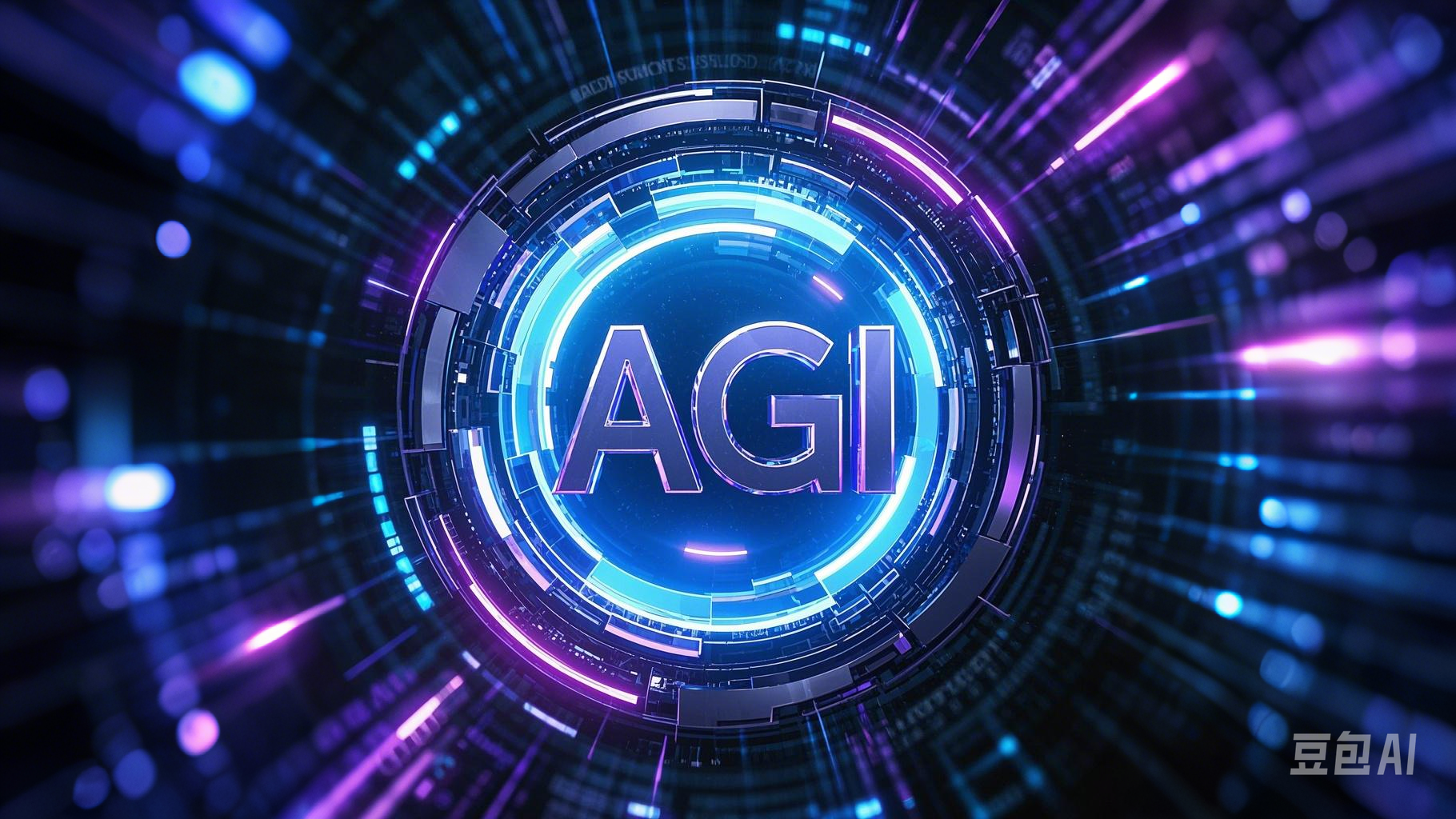
(Source: Doubao AI generation)
AGI, equipped with genuine reasoning abilities, transcends mere content generation based on requirements. It can perceive the real world, receive, recognize, and analyze various types of information, and then independently complete tasks as per requirements, potentially replacing some manual tasks.
According to technology media TestingCatalog, OpenAI is set to launch an AI agent named "Operator," potentially the first generation of AGI. This agent will initially be deployed on macOS, leveraging macOS's accessibility API to interact with the screen, enabling automated tasks such as coding, web browsing, and travel booking.
Automation tools have long existed, but most have rudimentary functions and can only perform tasks in specific fields based on fixed programs. The ChatGPT-empowered Operator can handle more complex tasks, and its information reception and reading have shifted from passive to active.
Dario Amodei, founder of AI company Claude, recently stated in an interview that within 2-3 years, AI systems surpassing human capabilities will emerge in various fields. However, these AIs will not immediately replace humans but rather complement them, potentially enhancing productivity.
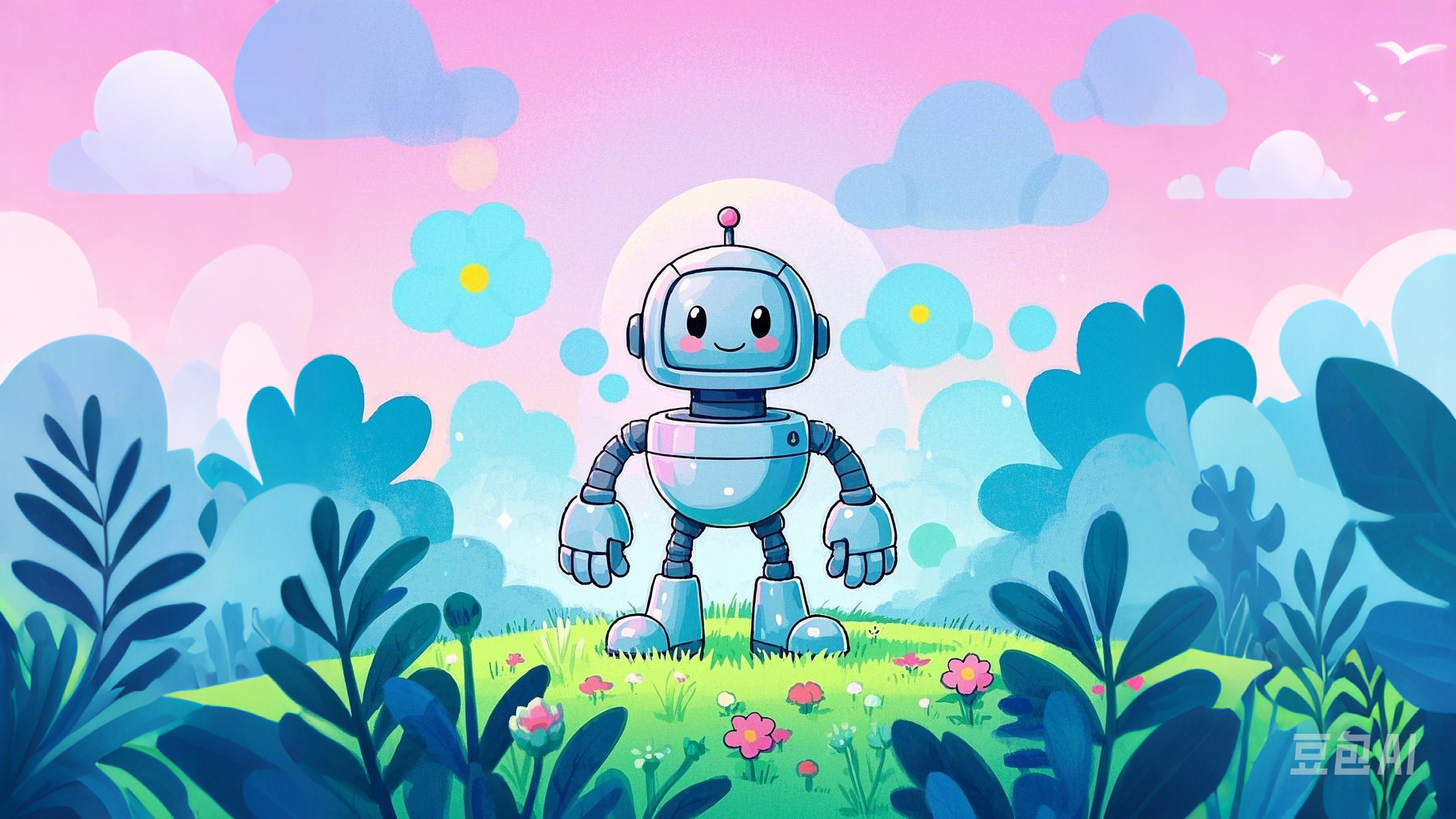
(Source: Doubao AI generation)
Regarding AGI, Dario Amodei believes it is more of a marketing term than a strict definition. Reasoning or test-time computation is not novel but an emergent property resulting from larger-scale and results-oriented model training.
While not denying the concept of AGI, Dario Amodei doubts its current ability to truly possess reasoning capabilities, arguing that it merely outputs computational results based on larger parameter models. Independent thinking is a crucial characteristic of AGI, and how to endow AGI with thinking abilities is a question the entire AI industry is grappling with. Domestic companies like ByteDance, Baidu, Alibaba, and foreign firms such as Google, Microsoft, OpenAI, etc., are all striving to overcome this challenge.
Large models with over trillion parameters exhibit complexity surpassing the number of human brain neurons, coupled with power consumption far exceeding that of the human brain. Yet, they still cannot infer as humans do. AGI will no longer be a simple competition of parameter quantity; the key lies in who can first endow it with thinking abilities. Domestic companies like ByteDance, Alibaba, Tencent, and foreign firms such as OpenAI, Google, Amazon Web Services, among others, are mobilizing resources to advance towards the AGI era, with 2025 potentially becoming the "first year of AGI".
Tech Giants Compete in AGI: A Battle of Technology and Resources
While independent thinking is considered a hallmark of AGI, it is not a rigid criterion. For instance, OpenAI's upcoming Operator release may be an AGI that does not support independent thinking.
In the FrontierMath mathematical reasoning test launched by Epoch AI, most AI large models achieved an accuracy rate of only about 2%. The OpenAI o3 large model, with an accuracy rate of 25.2%, was later exposed for having obtained the actual exam questions in advance due to funding Epoch AI, effectively acting as both a referee and a player. AI expert Gary Marcus compared it to the Theranos scam, believing OpenAI and Epoch AI were fraudulent.
This incident underscores that when faced with mathematical problems, AI cannot reason independently based on existing formulas but still relies on similar problems. Thus, while AGI may launch in 2025, we should not overestimate its capabilities. At this stage, endowing AGI with genuine reasoning and thinking abilities remains a distant dream.
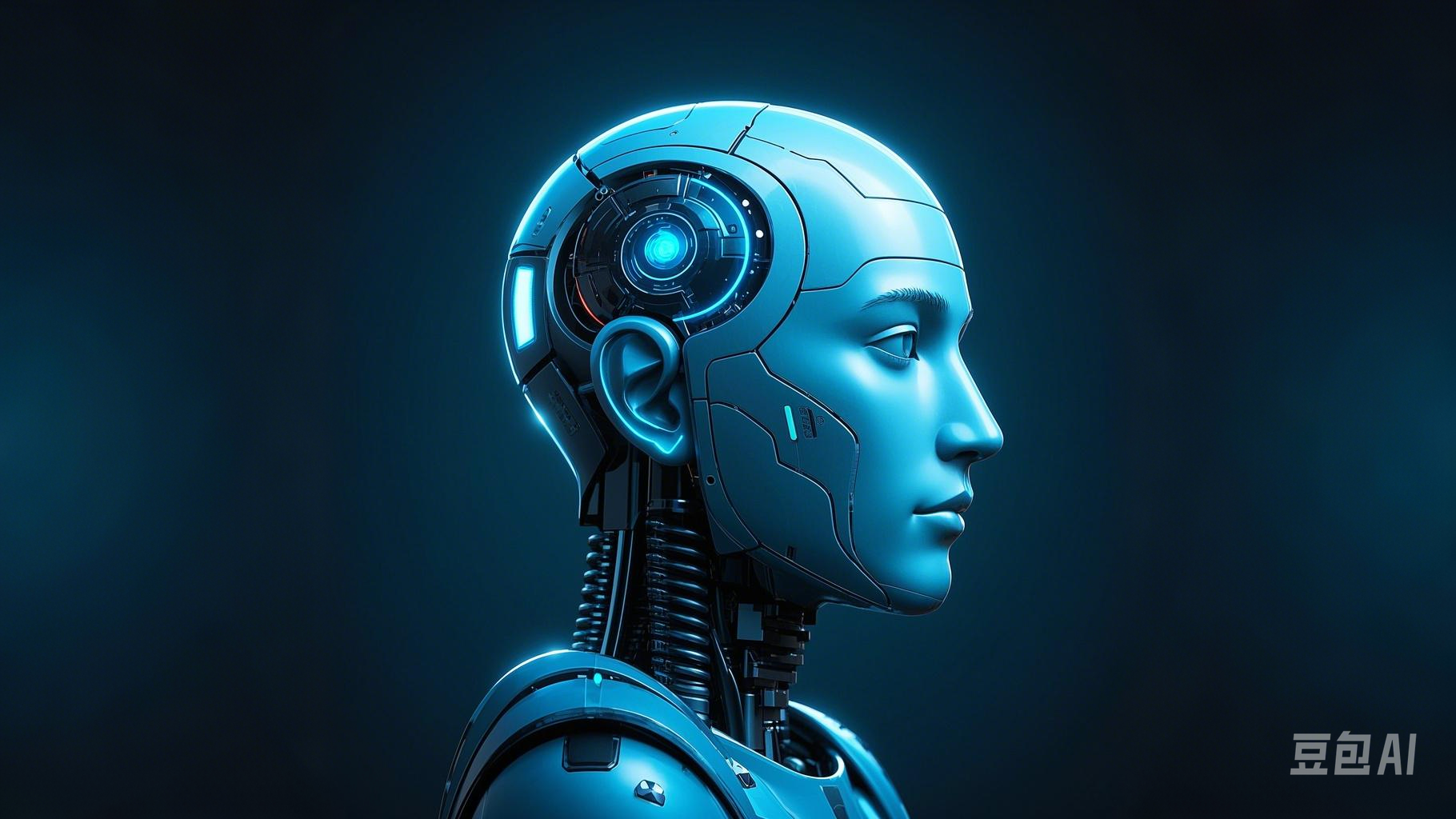
(Source: Doubao AI generation)
Industry development is a marathon, not a sprint. Early exploration paves the way for future achievements. ByteDance's former CEO Zhang Yiming personally overseeing recruitment, and Xiaomi's recruitment of DeepSeek researcher Luo Fuli, both highlight the intense talent war in the domestic AI industry.
Beyond recruiting technical talents, building data centers and large-scale computing power clusters with tens of thousands of cards or more is equally crucial. Recently, OpenAI, SoftBank, Oracle, and MGX announced the joint establishment of Stargate, a company that will invest a cumulative total of 500 billion dollars over the next four years to build AI infrastructure.
500 billion dollars is approximately equivalent to 3.6 trillion yuan. Initially, this figure was staggering. Tesla CEO Elon Musk bluntly stated on platform X that they did not actually possess that much money, and SoftBank had only locked in less than 10 billion dollars in investment. Despite SoftBank, Oracle, and MGX being dominant players, Apple's cash reserves are only 165 billion dollars, making it unlikely that these companies can collectively contribute 500 billion dollars.
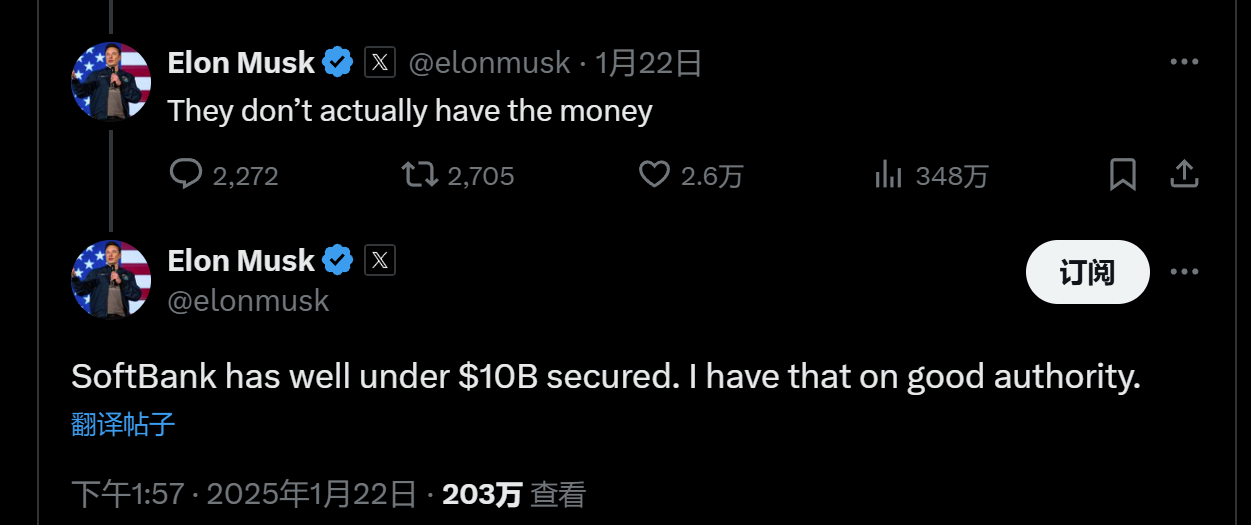
(Source: Screenshot from platform X)
Subsequently, OpenAI CEO Sam Altman refuted Musk's remarks, stating that Musk's comments were incorrect and inviting him to visit when the data center construction begins. Since Sam Altman did not specify the actual funding amount, it is reasonable to assume it may exceed 10 billion dollars but fall short of 500 billion dollars. This reflects OpenAI's dilemma: despite being valued at billions of dollars, its revenue is insufficient to cover expenses, relying on external investments to survive, and urgently needing to achieve profitability to satisfy investors.
Companies like Amazon Web Services and ByteDance, being internet giants with ample funds, do not face short-term profitability concerns. Today, while ChatGPT has adopted a charging model, ByteDance's Doubao remains free to use, serving as the best proof.
To develop AGI, ByteDance is significantly increasing its investment. The Financial Times reported that ByteDance plans to purchase 40 billion yuan worth of AI computing power chips by 2025, with 60% being supplied by companies such as Huawei and Cambricon. In overseas markets, ByteDance also plans to invest 6.8 billion dollars to establish data centers to circumvent the NVIDIA GPU ban.
However, there is no definitive news on ByteDance's specific AGI product plans, and further revelations are awaited. Given Doubao's impressive performance, ByteDance's AGI products are highly likely to rank among the top globally.
While OpenAI leads the AI industry, competitors are rapidly advancing with substantial investments in AI large models, gradually approaching ChatGPT's capabilities. Endowing AGI with independent thinking abilities remains a formidable challenge for enterprises. If other AI companies achieve technological breakthroughs first, they may surpass OpenAI.
Domestic internet giants have set their sights on AGI, with companies like ByteDance, Alibaba, and Tencent poised to be leaders in the AGI era.
The Road Ahead: Long and Arduous, with Giants Still Exploring
As the ultimate form of AI large models, AGI may not be the endpoint of AI but rather its current final form and new starting point. This identity underscores that achieving AGI is no easy feat. Besides technical hurdles, frequently mentioned ethical and social issues will also impede AI industry development.
But problems exist to be solved. Isaac Asimov proposed the Three Laws of Robotics and the Zeroth Law (supplementary law). If AI can truly think like humans in the future, it is highly likely that it will also adhere to the Four Laws of Robotics. Many internet giants will not cease their efforts due to technical difficulties or potential ethical and social issues in the future.
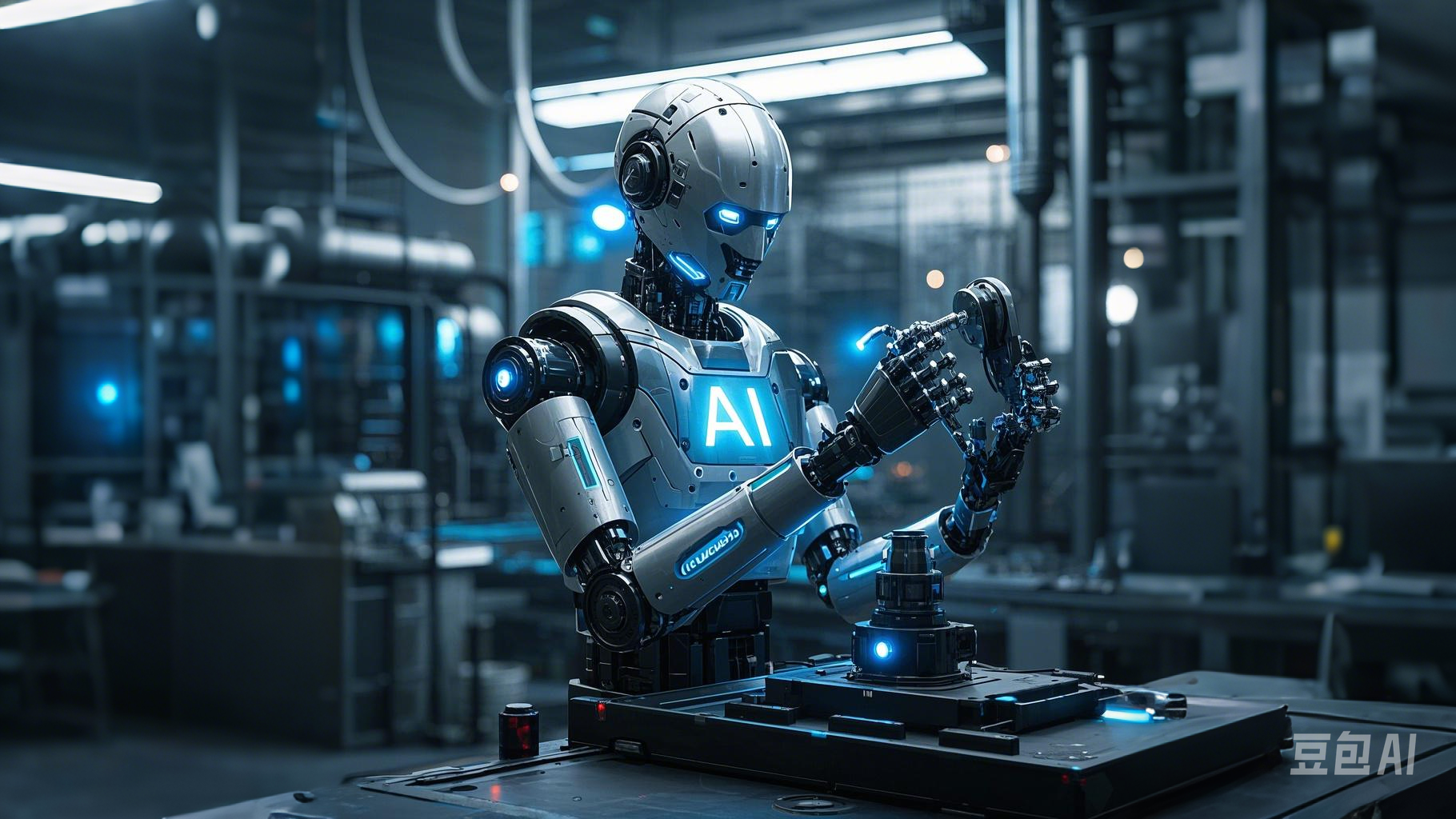
(Source: Doubao AI generation)
The delayed release of GPT-5 suggests that the path of AI large models may be nearing its limits. OpenAI insiders have revealed that there is insufficient data to train AI large models, prompting the company to hire employees to create original data. The limitation of data volume plagues traditional AI large models. Simply stacking parameter quantities is unlikely to cause a qualitative change. Only the emergence of AGI has the potential to usher the AI industry into a new era.
Fortunately, with the entry of many domestic and foreign enterprises, substantial capital investments, and technicians working tirelessly, AGI is expected to launch in 2025. However, initial AGI models probably will not possess independent thinking abilities, and their processing capabilities in some scenarios may not significantly surpass current AI large models. But through rounds of technological upgrades and iterations, AGI will gradually become a valuable assistant in enhancing our work efficiency.
Much like the impact of new energy vehicles on the automotive industry, AGI will significantly influence the traditional internet industry, potentially leading to a reshuffle. For the majority of internet enterprises, the era of AI and the impending AGI represent both an opportunity and a challenge.







